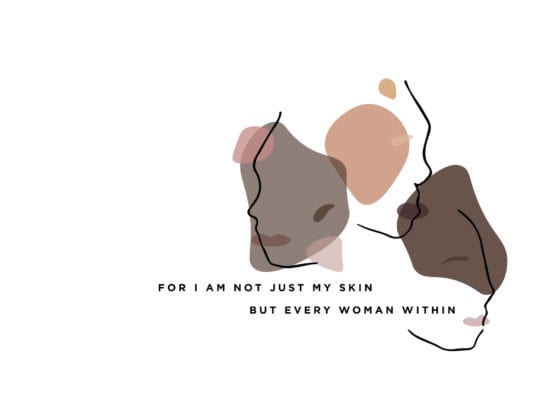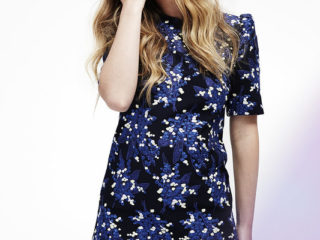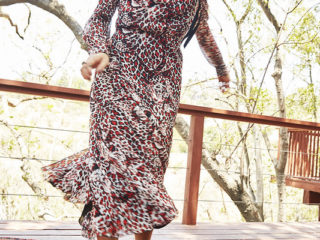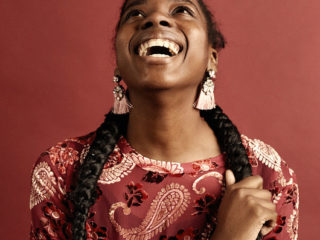The first time I cried watching a movie was a 1998 sci-fi movie about astronauts saving the world. Bruce Willis sacrifices his life to save the planet, and the scene where he says goodbye to Liv Tyler wrecked me. I cried so hard you would have thought it was my own dad giving his life for the planet.
I felt it so deeply. I remember frantically hiding in the bathroom and trying anything to stop myself. I just thought, “Something is wrong with me.”
Like most of us who are labeled “over-emotional,” I’ve had this same narrative in my head for my entire life. In our world, to feel deeply often means the weight of being “too much,” being weak and needing to change.
In our world, to feel deeply often means the weight of being “too much.”
Most of us know this isn’t necessarily true, but there still lingers a deep-seated belief, perpetuated by entertainment and society. We get eye rolls for getting passionate in public spaces or side glances for crying over things that we just “shouldn’t.” Strong women on TV and in business are characterized by a calm and collected demeanor at all times. Society’s underlying rule is that we must hold it together.
Shaming sensitivity and discouraging expression communicates that emotions are not valued and, therefore, those who feel things deeply are not valued. This is a lonely place to be. From experience, stuffing and hiding emotions carries repercussions that stick with you. It keeps your feet on shaky ground and your mind in constant battle to keep the chaos at bay.
One conversation changed it all for me. While talking with a friend, she asked, “Have you ever considered the positives of having deep emotions?” Never in my life had I considered what the good parts of my emotions were. Even more, who would I be without them?
Never in my life had I considered what the good parts of my emotions were.
Learning to love my emotions did not happen overnight (and is still very much in progress). The process has opened up an even deeper way for me to relate to others and most importantly, embrace every part of who I am—big emotions and all.
Fight for the truth.
After that movie scene, I labeled my response as an “overreaction.” The feelings were overwhelming and unclear, so I labeled them as bad. I had to put more work into understanding them—the necessary task of being a deep-feeler.
I had to put more work into understanding them—the necessary task of being a deep-feeler.
As a kid, you learn how to understand linear things like science and language, but with emotions, you often have to figure them out for yourself. If you don’t understand how to process and understand emotions, then the more intimidating and out-of-control those emotions seem. It starts with understanding that emotions are simple expressions. They are signals, communicating something about what you feel. Emotions can help you understand yourself better if you take a step back and try to dive into what is underneath.
It also means untangling yourself from the belief that there is a wrong or right way to see the world. Someone more less emotional than I am may have different expressions of their emotions, but this does not make them stronger or better than me, simply just different.
Let your emotions out.
I used to feel a lot of shame about my emotions. I was not interested in letting them out, in fear of all the labels people might place on me. Yet, expressing emotions doesn’t mean everyone has to see me cry or feel overjoyed. I found a few safe people who I let in. My own personal rule is that if it sounds too crazy to say out loud, I probably should say it out loud to them.
For me, saying things out loud has drastically changed how I manage my emotions. The feelings do not go away, but they significantly deflate once I put them into words. Speaking my emotions out loud allows me to consider them and try to untangle what they mean.
Speaking my emotions out loud allows me to consider them and try to untangle what they mean.
When I let my emotions out with my safe people, no one rolls their eyes or tells me I was too much. They accept me. Every time we do this, my fear and shame gets smaller and smaller as I realize that big emotions aren’t as scary as I thought.
Consider the benefits of empathy.
When I took a moment to look at emotions from a different point of view, I found something I had never considered—the empathy I have for others. What kind of friend would I be if I wasn’t as empathetic? Who would I be if I didn’t sit with my friends, feeling their sorrow and their joys? I could still be a good friend, but I wouldn’t be me.
Empathy has always been my olive branch when I don’t have the right words. It is how I care for the people I love, get to know new friends and do my job well. Without my deep emotions, I wouldn’t see the world the way I do and that isn’t something I’m willing to wish away.
What are the benefits of having deep emotions? How has being an empathetic person affected your view of the world?
Image via JUCO, Darling Issue No. 17











